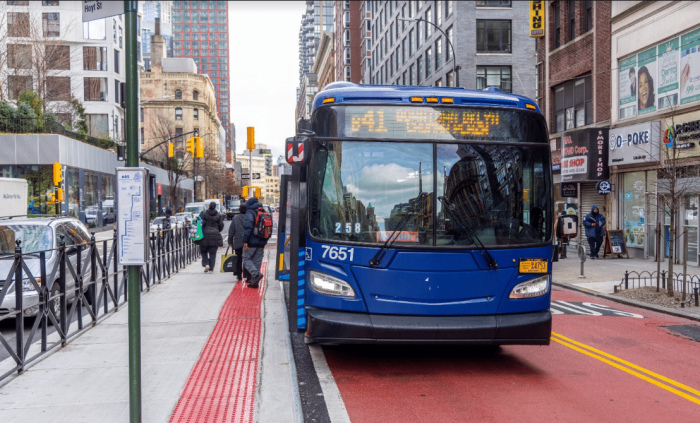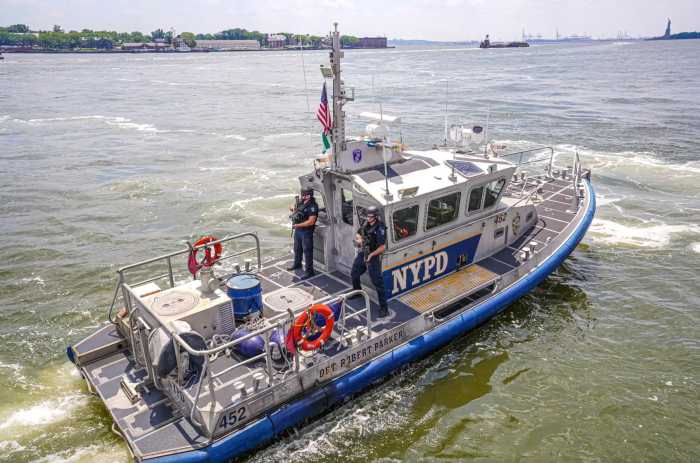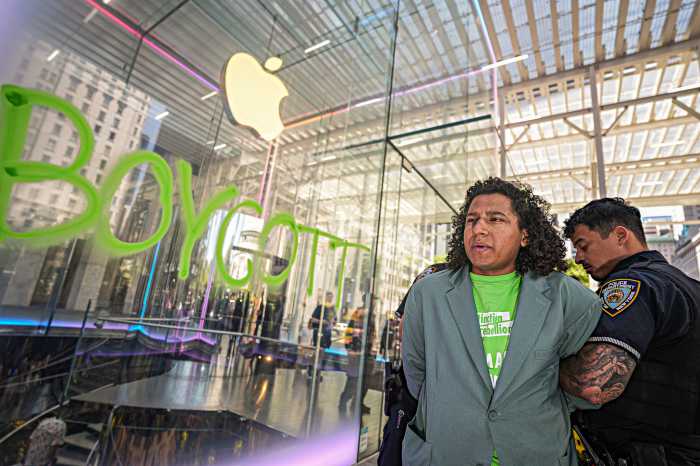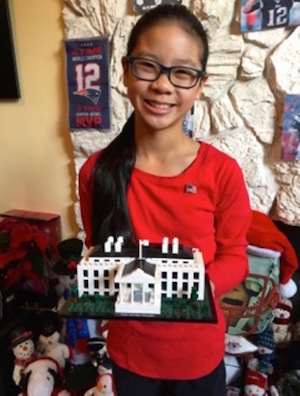
BY EILEEN STUKANE | My daughter walked through the door after what I had assumed was an uneventful day in third grade, but her face was tear-streaked. “I’m the only one in my class who can’t become president if I want to, the only one!” she said in a voice that contained a combination of sorrow and surprise. “I’m an American but the teacher said it’s because I wasn’t born here.” This came as a surprise to me, too. I believed that even though my daughter was adopted in Lithuania — because she was the full-fledged child of parents born in the USA, and an American citizen being raised in New York City (who probably felt more patriotic than I), and since she knew she could have had a very different life — she could run for president. I thought the teacher must have been mistaken, but I was wrong. The year was 2002.
Fast forward 11 years later to January 2013 when 8-year-old Alena Mulhern of Massachusetts hears President Barack Obama, in his Second Inaugural Address, say:
We are true to our creed when a little girl born into the bleakest poverty knows that she has the same chance to succeed as anybody else, because she is an American; she is free, and she is equal, not just in the eyes of God but also in our own.
Alena tells her mother, attorney Barbara Caparell, that she wants to be President of the United States, but her mother has to explain the barrier to her daughter’s dream. Alena was adopted as a 10-month-old baby in China, and while the Child Citizenship Act (CCA) of 2000 automatically granted her United States citizenship as the daughter of two American citizens, it did not help her overcome Article II, Section 1 of the US Constitution that states: “No person except a natural born Citizen…” is eligible to serve as President of the United States.
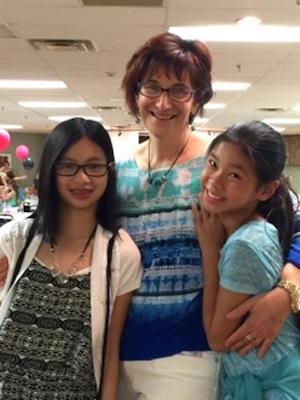
From 1999 to 2015, across the country 261,728 internationally adopted children became our sons and daughters — 17,590 of which were in the state of New York. Children with brains and talents to offer. “I tell my kids, as I’m sure you tell yours, ‘You can be anything you want to be when you grow up,’ ” Caparell said. “I never thought either of them [Alena has an older sister who was also adopted in China] would come to me and say that they wanted to be President of the United States, but when Alena said that, I had to say, ‘That’s the only thing you can’t be,’ and I told her about the law, that you have to be born on this soil. She said, ‘That’s not fair. I want to change the law.’ ”
From this moment sprang a new equal rights campaign that has found the now 11-year-old Alena Mulhern interviewed by Jenna Bush on the Today show, profiled in People Magazine, and pursued for media interviews. Internationally adopted children are raised as the American sons and daughters of American parents, but they are denied the right to run for, or become, President of the United States. Alena is the hopeful face of this equal rights issue and lawmakers are paying attention. Equal rights for internationally adopted children, whose childhoods include Girl Scouts, Boy Scouts, biking and soccer just like their peers born here, may be able to come about without any changes to the US Constitution at all.

REVISITING THE CHILD CITIZENSHIP ACT OF 2000 | When first learning that she could not run for president like her classmates, Alena did not accept the status quo as my daughter and I had. Instead, she sent a letter to President Obama with a petition of 120 signatures, requesting that the law be changed. A more-or-less form response arrived from the White House, but Alena remained committed. Honesty and leadership inspire her. Her favorite president is Abraham Lincoln. “I’m also inspired by my mom, who is outgoing, active, honest, and a great communicator,” she said. “When my dad died [Alena was 18 months old], my mom started a nonprofit organization [Jim Mulhern Forever Families Fund; jimmulhern.org] to help adopted families.” By making herself heard locally, Alena’s determination was noticed.
In 2015 a relative, Massachusetts State Representative Josh Cutler, proposed a resolution to the state legislature entitled, “Resolutions Equality For America’s Adopted Children,” which would call on Congress to amend the CCA to allow internationally adopted US citizens to be considered “natural born” and eligible to run for President. No change to the US Constitution would be required.
“Who is a natural born citizen is determined by Congress, by statute, and statutes can be changed,” Cutler said. Alena Mulhern, at age 10, then testified before the Massachusetts Legislature in the State House as she made her case for supporting the resolution. Her locally televised testimony spread to major television networks and was broadcast nationally. The exposure has made hers a sought-after voice for change, on equal rights for internationally adopted children. In true American fashion, she has stimulated awareness of a social inequity.
Meanwhile, Cutler’s resolution — currently approved by committee and awaiting a vote by both houses of the state legislature — would not change Federal law, but if the bill passes and is approved, “It’s a statement that the Commonwealth of Massachusetts believes this should be changed, a statement to our federal representatives to pursue that,” Cutler said. “If all 50 states were to pass something similar that would be a powerful voice that citizens want a change.”
“Now is the time to revisit the Act. Equal rights are emerging in positive ways,” says Bill Delahunt, former US Representative for Massachusetts’ 10th congressional district, and author of the Child Citizenship Act of 2000. In regards to getting the CCA passed in the first place, he said, “It was a long struggle but in the end we secured passage.” After its approval, the Act went into effect in February 2001, and according to Delahunt, the issue of running for president was never considered the first time around, which is why he believes right now is the time to do that.

celebrated, but her equal rights would be less than her peers. Photo by David Puchkoff.
TAKING IN ALL ANGLES | Over the years, the number of internationally adopted children in the United States has fallen. According to the Bureau of Consular Affairs at the US Department of State, after a high of 22,989 adoptions in 2004, 2015 found only 5,647 children were adopted from other countries. Due to changing policies and politics in foreign nations, the number of infants and toddlers available for international adoption is only a fraction of what it used to be. Countries like China, Russia, Guatemala, and Ukraine are not permitting international adoptions as they once did, and when children are available for adoption, they are often older or special needs children. In 2015, children were predominantly adopted in the 5-to-12-year-old age group. Barely any babies under one-year-old — which used to be a large group of adoptees — were available for adoption.
“The notion of adoption from overseas has changed radically and is still changing,” said Adam Pertman, President, National Center on Adoption and Permanency (nationalcenteronadoptionandpermanency.net) and author of Adoption Nation, “The kids being adopted from other countries today are overwhelmingly older, in sibling groups, and have special needs.” He went on to say, “If we get farther down the road with rights, including presidency, the conversation is going to look different, feel different to people. I’m not saying we shouldn’t do it, but I’m trying to look at this realistically. Maybe it’s all the more reason to do it.”
Pertman emphasized that when a child is adopted, “we consider that child to be equal to, and the same time as legally, ethically, as if you gave birth to that child. Well if you mean it, then you have to mean it, and if it’s complicated then you deal with the complications and this is one area of complication.” This reporter contacted the offices of US Senators Kirsten Gillibrand (NY), Ed Markey (MA), and John McCain(AZ) for their thoughts on changes to the CCA. Not one of them offered a response.
As Delahunt said, “Change as discovered is often slow and painstaking. This is the beginning of a lengthy process.” Alena Mulhern remains undeterred. Responding to a question about what she would like to say to President Obama, she answered: “Since I wrote my first letter and petition to you in 2013, my quest to change the law for me and adopted kids like me has gotten so much positive attention. I am hoping that my federal legislators in Massachusetts and other states will soon file a bill in Congress so that I may someday run for president. Thank you so much for giving me that hope, and someday it would mean a lot to me if you would stand beside me in this quest to change the law.”




